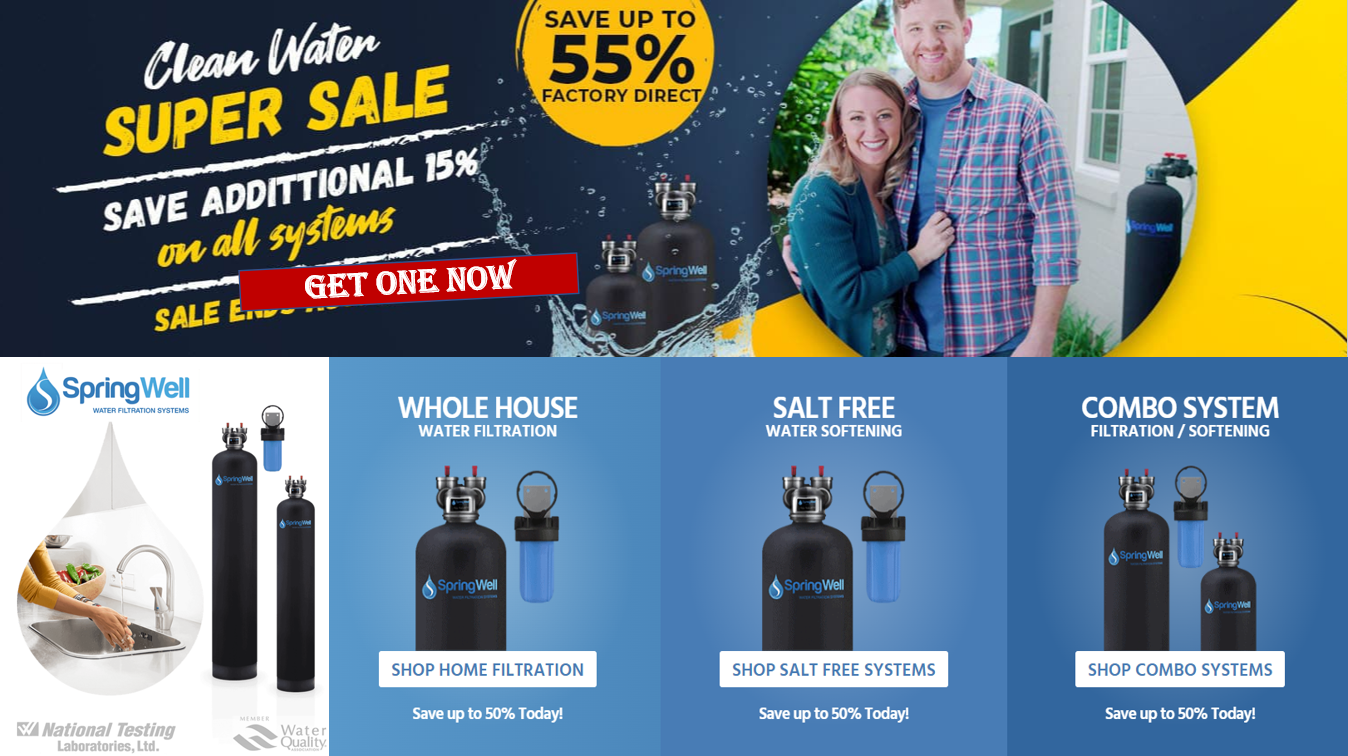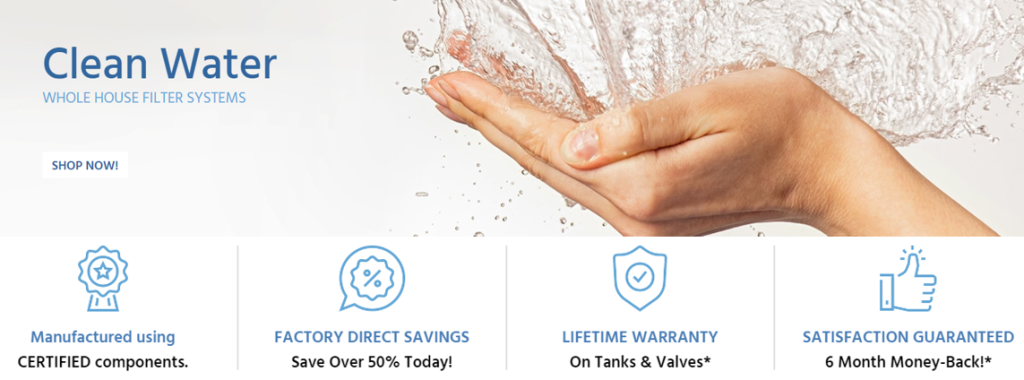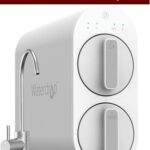Water softeners use an ion exchange process to remove hardness minerals from water.
There are many stories about how water softeners filter water, but one in particular is about a woman who was diagnosed with a rare disease that required her to drink only filtered water. Her husband installed a water softener in their home and she began drinking the filtered water immediately. Within a few weeks, her symptoms began to improve and she was eventually cured of the disease.
How Does A Water Softener Work?
A water softener works by removing magnesium and calcium ions from hard water and replacing them with sodium ions.

A water softener is a machine that removes the minerals that make water hard. The minerals are usually calcium and magnesium. Hard water can cause spots on dishes and clothing, and it can make it difficult to get soap to lather. A water softener works by exchanging the hard minerals in water for sodium or potassium ions. This process is called ion exchange. The water softener has a tank that is filled with small plastic beads. The beads are coated with sodium or potassium ions. As water flows through the tank, the hard minerals attach to the beads. This exchange of ions makes the water soft. The water softener will need to be recharged with salt or potassium periodically to replenish the beads.
Install a Home Water Filter & Get "Unlimited Safe Drinking Water" For Decades
Get Upto 55% Discount With a Lifetime Warranty & 6-Months Money Back Guarantee Free Shipping
SpringWell Water Filtration Systems: 100% American-Made & NSF Certified Water Filters and Water Softeners
Here is an example of how a water softener works. Let’s say that your water supply has a lot of calcium in it. The calcium makes the water hard. When you use water that is hard, you might notice that it doesn’t lather well when you try to wash your hands with soap. This is because the soap is having a hard time getting rid of the calcium. The soap is also not as effective at cleaning your hands.
A water softener will remove the calcium from the water. This will make the water softer and easier to lather with soap. The soap will also be more effective at cleaning your hands. In addition, softer water can help extend the life of your plumbing. This is because hard water can cause calcium deposits to build up in your pipes. These deposits can eventually clog your pipes. So, a water softener can save you money by helping you avoid costly plumbing repairs.
How Does A Water Softener Remove Calcium And Magnesium From Water?
Water softeners remove calcium and magnesium from water by exchanging the ions of these metals with sodium or potassium ions.
Water softeners are devices that are commonly used to remove calcium and magnesium from water. These two minerals are known as hardness minerals. Hard water is water that contains a high concentration of hardness minerals. Soft water, on the other hand, has a low concentration of hardness minerals.
Water softeners work by exchanging the hardness minerals in water for sodium ions. This process is known as ion exchange. During ion exchange, the water softener will release sodium ions into the water. These sodium ions will then bind to the hardness minerals, causing them to be removed from the water.
The water softener will then flush the hardness minerals and sodium ions out of the system. This process is known as regeneration. Regeneration is typically done at night, when water usage is at its lowest.
Water softeners are an effective way to remove hardness minerals from water. This can be beneficial for a number of reasons. Hard water can cause a number of problems in the home, such as scale build-up on plumbing fixtures and appliances. Softening water can also make it easier to lather soap and shampoo, and can improve the taste of drinking water.
What Are The Benefits Of Having A Water Softener?
There are many benefits to having a water softener, including reducing hard water buildup, extending the life of appliances, and improving the quality of water.
It is estimated that 85% of homes in the US have hard water. While hard water is not necessarily harmful to your health, it can cause a number of problems in your home. Hard water can damage your plumbing, appliances, and clothing. It can also make it difficult to get clean dishes, glasses, and laundry. A water softener can solve these problems by removing the minerals that cause hard water.
There are many benefits to having a water softener, including:
1. Longer lasting plumbing: Hard water can damage your plumbing over time by causing mineral buildup. This can lead to clogged pipes and fixtures. A water softener will extend the life of your plumbing by preventing this buildup.
2. Brighter laundry: Hard water can leave your clothes looking dull and feeling rough. A water softener will help your clothes look brighter and feel softer.
3. Softer skin and hair: Hard water can dry out your skin and hair. A water softener will help your skin and hair retain moisture for softer, healthier results.
4. spot-free dishes: Hard water can leave spots on your dishes. A water softener will prevent these spots, leaving your dishes sparkling clean.
5. Reduced appliance damage: Hard water can damage your water-using appliances over time. A water softener will reduce the wear and tear on your appliances, making them last longer.
6.Lower water bills: Hard water can cause your water bill to be higher than necessary. A water softener will remove the minerals that contribute to higher water bills, saving you money.
7. Environmental protection: A water softener can save you up to 4,000 gallons of water per year by preventing mineral buildup in your plumbing. This will also reduce the amount of detergent and chemicals you need to use, further protecting the environment.
If you’re considering a water softener for your home, the benefits above should convince you that it’s a wise investment. A water softener will save you money, extend the life of your appliances and plumbing, and leave your clothes, dishes, and skin looking and feeling their best.
Is A Water Softener Expensive To Maintain?
No. A water softener is not expensive to maintain.
If you have hard water, then you know the drill: soap scum buildup, mineral deposits on fixtures, and dry skin and hair. A water softener is key to solving these problems, but is it expensive to maintain?
The short answer is no, a water softener is not expensive to maintain. In fact, it will actually save you money in the long run by preventing damage to your plumbing and extending the life of your water-using appliances.
Here’s a breakdown of the costs of owning a water softener:
Initial cost: Water softeners vary in price, depending on the type and size. A basic unit starts around $200, while a high-end model can cost up to $1,000.
Installation: Unless you’re a DIYer, you’ll need to hire a professional to install your water softener. This will add to the initial cost, but the average cost of installation is around $200.
Salt: Water softeners use salt to remove minerals from the water. You’ll need to replenish the salt regularly, which costs around $5-$10 per bag.
Electricity: Water softeners need electricity to run, so there will be a small increase in your electric bill. The average cost is around $5-$10 per month.
Maintenance: Water softeners require very little maintenance. You’ll need to clean the brine tank every few years, which is a simple process that takes around 30 minutes.
As you can see, the costs of owning a water softener are relatively low. In fact, the savings you’ll enjoy by having softer water will far outweigh the costs. So if you’re considering a water softener, don’t let the cost deter you – it’s an investment that will pay off in the long run.
How Often Does A Water Softener Need To Be Regenerated?
A water softener typically needs to be regenerated every 2-4 weeks.
If your water softener isn’t working properly, one of the first things you should check is the regeneration schedule. Over time, the resin beads in your water softener will become coated with minerals, and will need to be regenerated with salt to remove the hard water buildup. Depending on the type and size of your water softener, the regeneration schedule will vary.
For example, a standard 24,000-grain water softener will need to be regenerated about every four to six weeks. But if you have a high-efficiency water softener, you may only need to regenerate it once a month or even less.
If you’re not sure how often your water softener should be regenerated, check the manufacturer’s instructions. You can also talk to your local water treatment professional. They can help you troubleshoot any problems with your water softener and determine the best regeneration schedule for your needs.
FAQ
What Are The Signs That A Water Softener Needs To Be Regenerated?
How Long Does A Water Softener Typically Last?
What Are The Consequences Of Not Having A Water Softener?
What Are The Consequences Of Using Hard Water?
How Can I Tell If My Water Is Hard?
Conclusion
Water softeners work by exchanging ions in the water with ions on the resin beads. The beads are made of a substance that is attracted to calcium and magnesium. As water flows over the beads, the calcium and magnesium trade places with the beads.
If you are still unclear about how water softeners work, please leave a comment below and we will be happy to answer your question.


